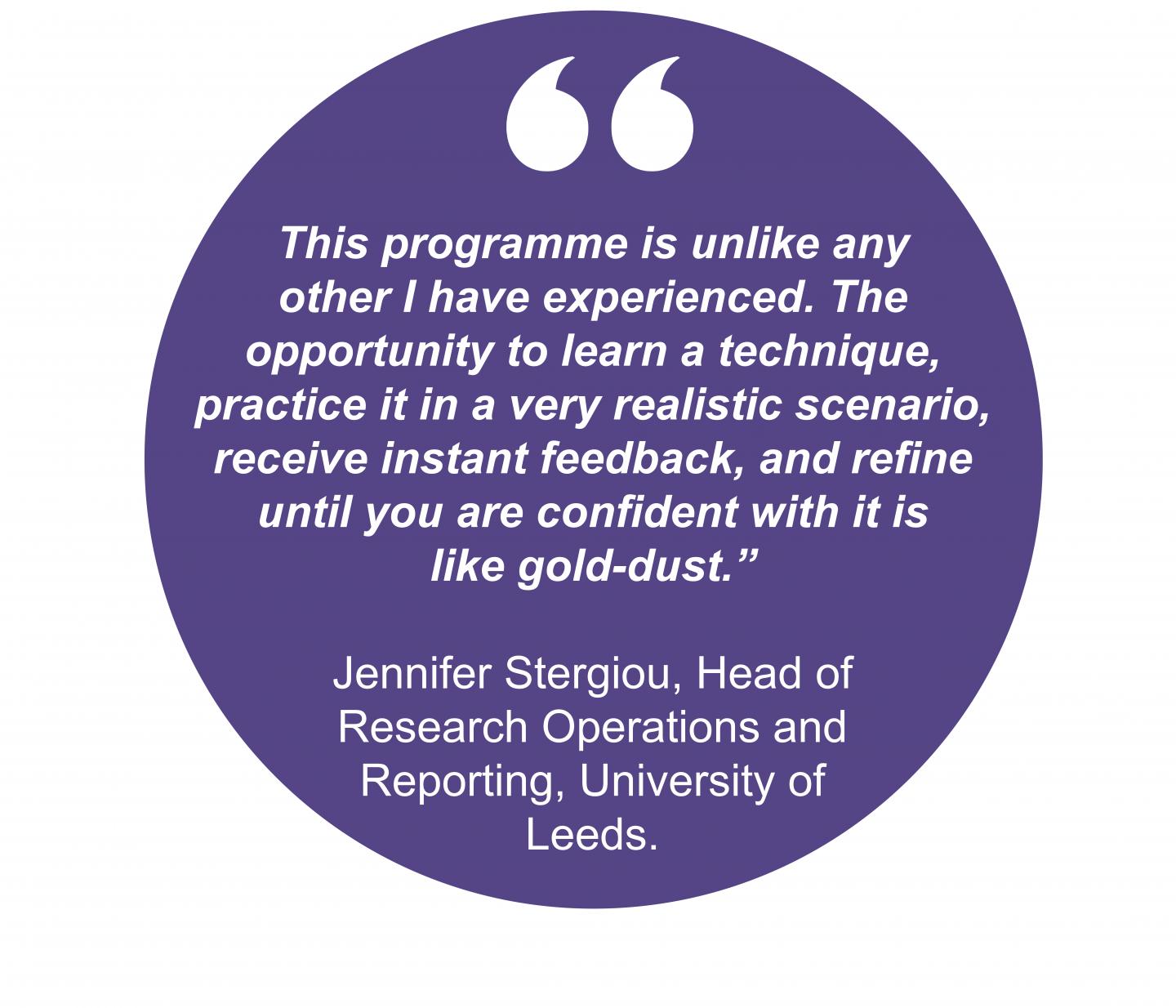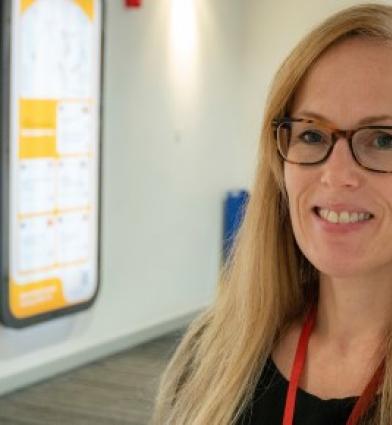
Leaders of professional services and academic departments / schools face the unique challenge of balancing significant leadership responsibilities with the day-to-day considerations of leading ‘front-line’ academics and professional service staff. These can include commercial viability, conflicting priorities and managing their own, and their team’s well-being.
Successfully navigating this balance relies on skilfully working in partnership with others; whether to achieve action through influencing those in senior positions, or whether to supporting teams with practical challenges.
Leading Departments is a highly experiential programme, providing the opportunity to directly apply theory to practice and receive immediate feedback through the use of simulations contextualised to higher education.
Book your place
Start date: 15 May 2024
Booking deadline: Tuesday 30 April 2024
Find out more
Request an information pack to find out more about the next programme starting on 15 May 2024.
Hear from Leading Department participants
In this short video, previous Leading Department participants and the delivery team talk about their experiences of the programme.
Who is Leading Departments for?
This innovative programme is designed for those who may have had previous experience of managing teams, but are seeking a highly applied development programme to enhance their leadership of a department, school or within professional services.
The programme is designed to be suitable for you whether you have an academic background and are leading a teaching, research or knowledge transfer department or whether you are leading an administrative or a professional service, for example, student support services, information technology service, marketing, or campus services.
Why choose Leading Departments?
Participants benefit from the opportunity to explore the use and balance of intellectual, emotional and political intelligences in facing day-to-day challenges. They also have the chance to identify their own leadership styles and preferences, and consider the implications of these for the leadership of performance.
- Participants are able to put what they have learnt into practice, back in their institutions immediately too, because simulation is so relevant to their day to day working lives.
- Peer networks and the opportunity to develop strong and effective relationships through the programme cited as invaluable and of lasting benefit in terms of ongoing support and dialogue beyond the programme.
- 360 Diagnostic completed online between the first and second modules supports participants ongoing development and learning through the two modules.

The simulated environments approach used on the programme is incredibly powerful and impactful. These environments challenge participants to confront complex, highly interwoven performance management and operational issues and explore motivation as a way of achieving their own and others’ high performance.
About the programme
This innovative residential programme takes a highly experiential approach to exploring and practising new skills and behaviours necessary for successful department or school leadership. The programme:
- Is a highly experiential programme design delivered via an ongoing business simulation customised to the higher education context – where you get to put into practice leadership theory, tools and techniques in a safe space, and receive feedback and coaching from colleagues and programme delivery team.
- Explores themes such as commercial viability, partnership building and balancing priorities, alongside the day to day realities of leading a department or school.
- Features team working, enabling programme participants to stretch and refine their leadership capabilities across a range of situations, receiving immediate feedback, coaching and valuable opportunities to rewind and try again as they progress.
Share and celebrate your achievements with digitally recognised learning
For much of our portfolio for 2022-23 the learning of event attendees and programme participants and conference, symposia and colloquia presenters will be digitally recognised.
This makes it easy for you to share and celebrate your achievements by adding them to your email signature or including them in your social profiles including Twitter, LinkedIn and Facebook. Your learning certificates can also be easily verified and downloaded as a pdf.





